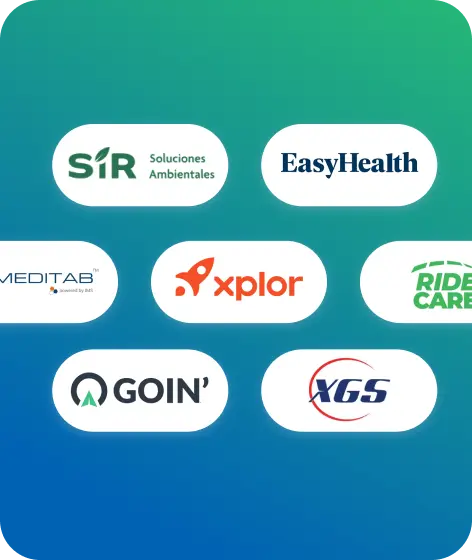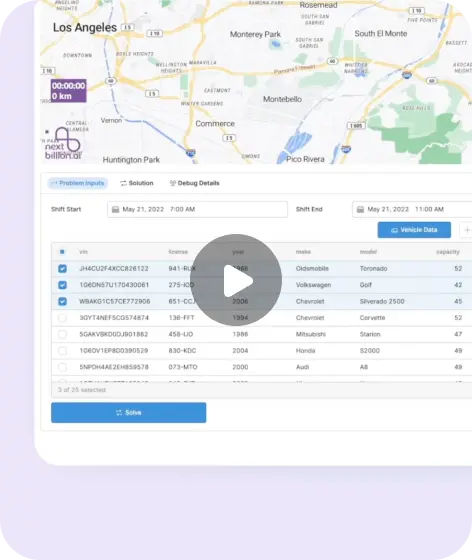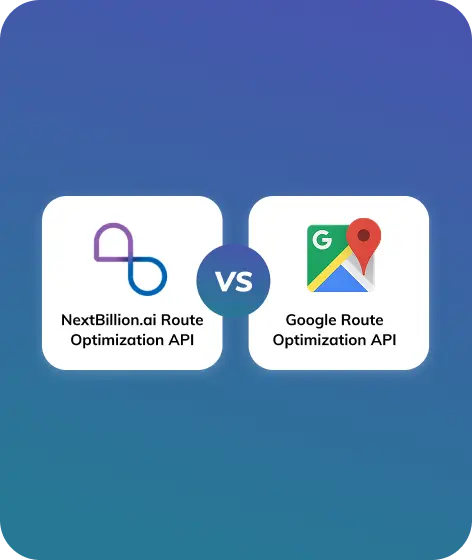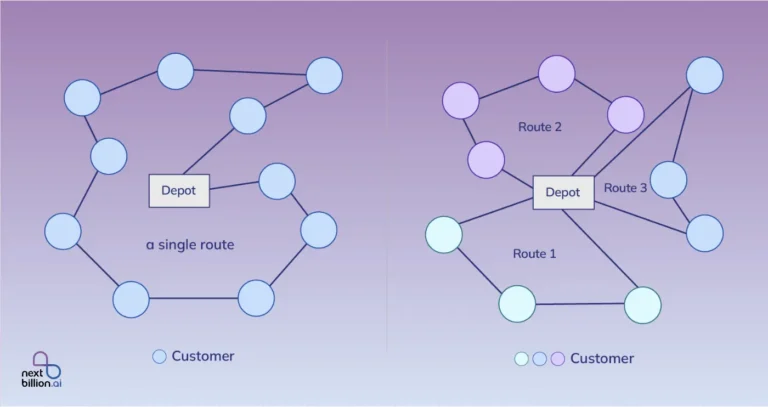
Table of Contents
In recent years tremendous changes have been seen in the cargo van delivery sector, driven by innovation spurred by changing customer expectations and technological breakthroughs. Cargo van delivery services are essential in today’s market since they help firms interact with their clients.
These companies are now the backbone of supply chain networks due to the growth of e-commerce and the increased demand for prompt and dependable delivery. It is impossible to overestimate the significance of effective cargo van delivery services given the ongoing expansion of internet shopping and the variety of goods being transported.

What is a Cargo Van Business?
Understanding all of the nuances of the cargo van industry is essential when starting a company venture, from determining its scope to realizing its critical function in the larger supply chain. Let’s examine the fundamentals of this ever-evolving sector, including its definition, reach, and range of markets that present prospects for cargo van transportation services.
Fundamentally, a cargo van company focuses on moving freight in the form of small, multipurpose vehicles called cargo vans. These vans are perfect for last mile deliveries, the last link in the supply chain that delivers goods straight to the customer because they are built to maneuver through urban environments.
Depending on the demand in the market, a cargo van delivery company may deliver everything from packages and parcels to perishable goods and specialty cargo. In the larger supply chain ecology, cargo van transport companies are essential. As the final connection between producers, distributors, and retailers and the final customer, these companies make sure that goods arrive at their destination in a timely and dependable manner.
The effectiveness of cargo van delivery services has a direct impact on customer satisfaction and loyalty in an e-commerce-dominated era where customers anticipate quick deliveries and real-time tracking. Cargo van delivery services make a substantial contribution to the supply chain’s overall success by establishing a connection between companies and customers.
There are many different and growing potential markets for cargo van delivery services. There is a sizable market for last mile logistics in urban areas because of their dense populations and strong demand for prompt deliveries. Potential customers include e-commerce sites, nearby companies, and even conventional merchants looking to improve their delivery services.
Additionally, cargo van delivery companies can meet unique demands by focusing on niche industries like fragile goods, specialty foods, and medications.
Recognizing the versatility of cargo vans, valuing their function in the supply chain, and recognizing the wide range of markets and niches where these services are highly sought-after are all necessary to comprehend the subtleties of the vehicle.
Equipped with this understanding, prospective business owners can strategically place themselves within the sector and create the conditions for a prosperous endeavor in the ever-changing cargo van delivery market.
Why Launch a Cargo Van Delivery Business?
Operating a delivery business can be a great way to make a respectable living and have the freedom of being your own boss. Delivery companies usually require little infrastructure and have modest startup costs. A delivery service business is a popular option for young parents, retirees, and others seeking a healthy work-life balance since it gives you the freedom to choose your own schedule and workload.
There are many chances to expand your business and make a difference in your community, whether you’re delivering locally or nationally.
Therefore, launching a delivery service can be the ideal choice for you if you’re wondering if there’s a method to make your passion a successful business.
Key Benefits of Starting a Cargo Van Delivery Business
Many local businesses are switching to the cargo van transportation industry since it may significantly increase earnings and minimize difficulties. These are the three primary advantages.
1. More number of delivery orders
Your preferred choice is a cargo van since it enables you to handle larger order volumes and increase your overall delivery volume. Carrying a large number of packages is the primary use of cargo vans. Therefore, if you have a lot of orders but can’t put them in the delivery trucks because of their size, you can add more deliveries. Sprinter vans are a great option.
Unlike regular cargo vans or box trucks, a cargo van’s enormous payload capacity allows it to transport bigger packages in addition to having greater space. Vans are suitable for long goods, but if you need to fit large building supplies like plasterboards, you’ll need a cargo van.
2. Space to fit in multiple packages
Typically, a cargo van is a sizable box on wheels. People occasionally use cargo vans and box trucks interchangeably, despite the fact that they are slightly different. Packages, tables, chairs, furniture, tools, and food items can all be carried in these vehicles with plenty of room.
The van’s rear cargo area has a substantial load capacity and is measured in cubic feet. Depending on your needs, you can select a model from manufacturers who offer a variety of wheelbase and roof height options.
Cargo vans only have two front seats since they are designed to be roomy enough to accommodate more packages. However, you can choose other models that include seating options, like a passenger van, if you need more employees to meet your business needs.
Additionally, you can have your cargo vans upfitted by professionals or find out whether your manufacturer offers upfitting services when you buy it. A van upfit is a versatile modification that entails adding specialized parts and extras without changing the van’s appearance.
3. Increases delivery speed and gives branding opportunity
Without having to worry about getting a speeding ticket, a cargo van can help you increase delivery times and satisfy consumers. Cargo vans are easy to maneuver and are smaller. so it’s convenient for you to drive across your routes. Additionally, operating a cargo van requires less parking space and does not require a commercial driver’s license (CDL).
It is therefore superior to a huge truck since it speeds up delivery. Because of its efficiency and quickness, the Sprinter van business model is widely used.
A car with more horsepower can go faster and transport more loads. If you’ve been having trouble moving bulky items in a slow-moving car, a cargo van might be your best option.
Steps to Start a Successful Cargo Van Business
1. Develop a Solid Business Plan

Initiating a new business demands organizing and managing several aspects, including banking and funding alternatives, licenses and permissions, and insurance policies. You can put ideas into action at the perfect moment with the aid of a well-written cargo van business plan.
After developing a business plan, you can think about the service you are going to provide with the help of a cargo van. You can provide a wide variety of services like e-commerce delivery services, moving services, courier services, logistics, specialized transportation, mobile businesses operations.
2. Organize Your Finances

You need to organize your money in order to ensure that your new firm operates successfully. Implementing company accounts first will help you establish credit for future transactions. Be careful to maintain a clear separation between your personal and work accounts. If not, funds from personal accounts could be improperly used for business objectives, or the other way around.
There will be slow times when launching a firm. You should plan for unforeseen scenarios that can slow down your business during these periods. This will help you run your business without interfering in the way of your everyday tasks.
The subsequent step is to guarantee that your organization has numerous payment gateways. This allows customers to pay in whichever mode that is most convenient for them. This raises client satisfaction.
3. Seek for Financial Backing

Every company needs a carefully considered investment plan. Presenting your idea to potential investors is one approach to get in touch with them. They will give the money to your business after they approve the plan.
It is not necessary to have investors for your business idea. You can even use the money you have saved for your project. You will be less reliant on the investors if you do this.
4. Acquire the right Cargo Van

Since every business is unique, the kind of van you need will depend on how many goods you plan to haul, as well as the weight and size of those packages. Depending on the nature of your business, budget is another consideration when purchasing a van.
You may choose the greatest cargo van for your money based on all of the afore mentioned considerations as well as the characteristics you require in your van. You can visit the closest dealer or select one from the link. As was previously said, during the purchasing process, you can inquire with the dealer about equipping your van with the necessary components.
5. Register your Cargo Van Delivery Business

Before registering your cargo van firm, you may need to decide on a business name and logo, depending on their availability. You may prevent copyright infringement by maintaining the distinctiveness of your name and insignia. You may then create a genuine website and incorporate your cargo van transport business to help customers find you.
Depending on your requirements, you can set up your van delivery business as an LLC, corporation, or partnership. A lawyer will help you establish the entity and give you further details about its rules, conditions, and use.
It may also be a good idea to open a bank account for your cargo van transport business. You’ll be able to maintain organization, separate your personal and commercial finances, establish the legitimacy of your business, and pay taxes on time.
6. Obtain necessary Licenses and Insurance
Depending on your business kind (flower delivery, courier, or any other transportation service), you might need to obtain the necessary permissions, licenses, and cargo insurance coverage plan even though you don’t need a CDL (Commercial Driver’s License) for your van business.
Depending on state and local regulations, you could require a license if you provide moving services. To obtain the right license and begin providing outstanding customer service, a lawyer can assist you in understanding cargo insurance and licensing needs.
7. Brand and Market your Delivery Services

Establishing a distinct, unified image that appeals to your target market is essential to building a successful brand identity for your laundry delivery company.
Identify your major selling factors and distinctive value proposition to set your company out from the competition. Create a clear marketing strategy to advertise your cargo van services to your intended market.
To demonstrate the presence of your brand, create a logo, website, and social media page. To effectively target your customer, all of these components should align with your company’s exact concept.
Your company’s logo and contact details must be displayed on the truck you utilize in order to improve visibility.
Additionally, you can employ digital marketing strategies like social media campaigns, Google Ads, and SEO to draw in clients that are actively looking for delivery service options.
8. Hire and Train Staff

Hire dependable and competent workers to assist your cargo van business, including drivers, dispatchers, and administrative staff. Perform screening procedures and background checks. Give your staff thorough training and continuous assistance to make sure they are ready and in line with your company’s objectives.
9. Set up Operational Systems
Important choices and strategic considerations must be made before starting your cargo van delivery business. Meeting client expectations and keeping a competitive edge depend heavily on the smooth functioning of your business, from selecting the best cargo vans to putting in place effective delivery routes.
A crucial choice that has an immediate effect on the effectiveness and capacity of your delivery operations is selecting the right cargo van. Take into account elements like cargo capacity, fuel economy, and urban mobility.
Make sure your decision fits the unique requirements of your cargo van delivery company, whether you’re going for larger models for greater capacity or smaller vans for smaller weights.
Give your cargo vans the necessary equipment and accessories to maximize their performance during delivery operations. This could include temperature-controlled sections for perishable items, shelf systems for orderly storage, and security measures to protect priceless cargo.
Adapting your vans to the particular requirements of your cargo services improves productivity and raises the general dependability of your business.
For your cargo van business to succeed, scheduling and delivery routes must be optimized. Use route optimization tools to improve fuel efficiency, cut down on travel time, and streamline delivery routes. Using efficient scheduling techniques guarantees on-time delivery, which increases client loyalty and satisfaction.
You can meet the needs of a changing delivery landscape and optimize fleet productivity by carefully arranging your routes and schedules.
Technology is essential to streamlining cargo van transportation operations in the digital age. Using cutting-edge software solutions can greatly increase the productivity of your company. With the help of Nextbillion.ai software solutions, which offer real-time tracking, route optimization, and simplified communication, you can keep an eye on deliveries, interact with drivers, and easily adjust to changing conditions. By incorporating such technology into your business processes, you may improve customer satisfaction and productivity.
The combination of the appropriate vehicles, necessary equipment, effective routing, and state-of-the-art technology creates the foundation for a profitable cargo van delivery business. You may position your cargo van transportation company for expansion and long-term success by embracing innovation and adjusting your operations to the changing last mile logistics scenario.
10. Optimize operations with delivery management tools
Handling deliveries by hand can become too much to handle as your company expands. Use delivery management software to streamline processes and boost productivity. These tools have features such as:
These tools offer features like:
- Route optimization: This technique aids in the effective planning of the optimal routes to reduce travel time and fuel expenses.
- Real-time tracking: Real-time tracking allows you to monitor your drivers and notify clients of the precise time the delivery will be finished.
- Proof of delivery: By obtaining digital signatures, pictures, or notes at the time of delivery, you can guarantee responsibility and establish professionalism.
What Can You Use a Cargo Van Delivery Business for?
Depending on your tastes and the needs of the market, a cargo van company can provide the following services:
- Deliver furniture or provide moving assistance.
- Services for last-mile deliveries
- Services for catering
- Delivery of flowers
- Transports for medical care
- Cleaning services
- Mobile auto detailers
Explore Nextbillion.ai’s solution to Automate Operations

We have examined the fundamental prerequisites for launching a cargo van delivery company. However, launching this business entails more than just getting a car and making sure the clients are happy. Choosing the appropriate tools and resources is crucial if you want to succeed in this industry.
Complex scheduling, route optimization, real-time tracking, traffic jams, resource management, and consumer convenience are the main problems in this industry.
Every client has a different preferred timing for deliveries and pick-ups. Resources for cargo van delivery must map out preferences in order to keep time. Effective route planning is required in situations when the service is impacted by variables like delivery time and traffic conditions.
Real-time tracking is the next significant barrier, impacting consumer communication and adaptability in the event of emergencies or last-minute changes. Effective resource management is necessary to balance the distribution of employees and delivery trucks. Overuse or underuse of resources can lead to inefficiencies and higher costs.
Lastly, maintaining operational efficiency while meeting consumer convenience expectations—such as certain timeframes and preferred locations—is never easy.
Are you trying to find the best software to deal with this issue? Prepare to investigate Nextbillion.ai’s solution.
Distance Matrix API
Planning a route is crucial when making several delivery stops. The Distance Matrix API is quite useful in these circumstances. It makes it possible for providers to assign tasks based on proximity. By calculating the distances and anticipated arrival times between their current locations (origins) and customer destinations, any service can optimize their delivery routes.
As a result, delivery teams are more productive, services are provided more efficiently, and consumers are ultimately happier.
Directions API
By providing precise arrival time predictions and optimizing delivery vehicle routes, the Directions API has the potential to revolutionize the delivery services sector. By determining the most efficient routes while accounting for current traffic conditions, Cargo Van Delivery service providers may more effectively deploy their delivery teams, reducing fuel costs and travel time.
Furthermore, this API’s adaptability in providing directions for different types of vehicles ensures that every service truck takes the most efficient route.
Navigation API
Services which deal with vehicles highly require effective route planning. The Navigation API enables this by reducing travel time and fuel consumption. Providers can provide their delivery teams with turn-by-turn directions by integrating this API into their navigation apps or by using the Navigation SDK.
Route Optimization API
The Route Optimization API is a very helpful tool for coordinating many service stops in a single journey. By considering various limitations, including truck capacity and time limits, this API helps Cargo Van Delivery service design the most efficient routes for their fleet.
Because this optimization leads to shorter route durations, fewer gasoline use, and guaranteed on-time service, it ultimately saves money and improves customer satisfaction.
Live Tracking API
The Live Tracking API has made it possible for these businesses to monitor the location, behavior, and state of their delivery teams in real-time. Providers can monitor service status, respond swiftly to customer inquiries and emergencies, and improve fleet management by implementing this API.
The event and alert features of the API allow providers to further improve fleet management and operational effectiveness by setting up notifications based on technician activity.
Clustering API
The Clustering API can help cargo van delivery services by improving resource management and logistics. Providers can optimize technician routes and cut down on travel time by clustering service requests based on user-defined parameters like geographic proximity, customer preferences, or equipment type.
Customer satisfaction rises as a result, and response times are shortened. To further streamline operations, the API’s automatic algorithm can help choose the most central location for technician dispatch.
Geocode Postcode API
Cargo van delivery services can use the Geocode Postcode API to get geographic coordinates and boundaries for postal or ZIP codes. This makes it possible for service providers to precisely match customer addresses with the appropriate service area, guaranteeing proper technician dispatching and preventing needless travel to the wrong places.
Geofence API
Cargo Van Delivery services can draw unique geographic borders around particular client locations or service areas using the Geofence API. In order to guarantee that technicians are on-site when needed, this feature allows providers to get automatic alerts when technicians arrive or exit specific locations. Proactive maintenance and quicker reaction times are made possible by this method.
Conclusion
Establishing a cargo van delivery company can be financially rewarding if done correctly. Success requires careful planning, understanding your target market, and differentiating yourself from the competition. Begin by conducting market research to learn more about potential competitors and local demand. Invest in reliable, eco-friendly equipment and acquire the necessary permissions.
Offer a user-friendly web platform or mobile application for scheduling and payment processing, and ensure efficient logistics to ensure on-time delivery. Finding the ideal balance between technology, excellent customer service, and convenience can help you build a successful laundry delivery business that meets the needs of modern consumers.
Product and technology leaders at major logistics firms benefit from the integration of Nextbillion.ai Route Optimization APIs into the delivery system. Obtain precise paths to transport orders from your warehouses and retail locations to your final consumers’ doorsteps. This will give the company a competitive advantage, lower operating expenses, and increased customer satisfaction. The APIs from Nextbillion.ai can be used to create new benchmarks for service excellence and to cultivate devoted clients.
About Author
Divya Nair
Divya is a dedicated Technical Content Writer with experience of two years in the industry. Her expertise spans various forms of writing, including blogs and website content.














